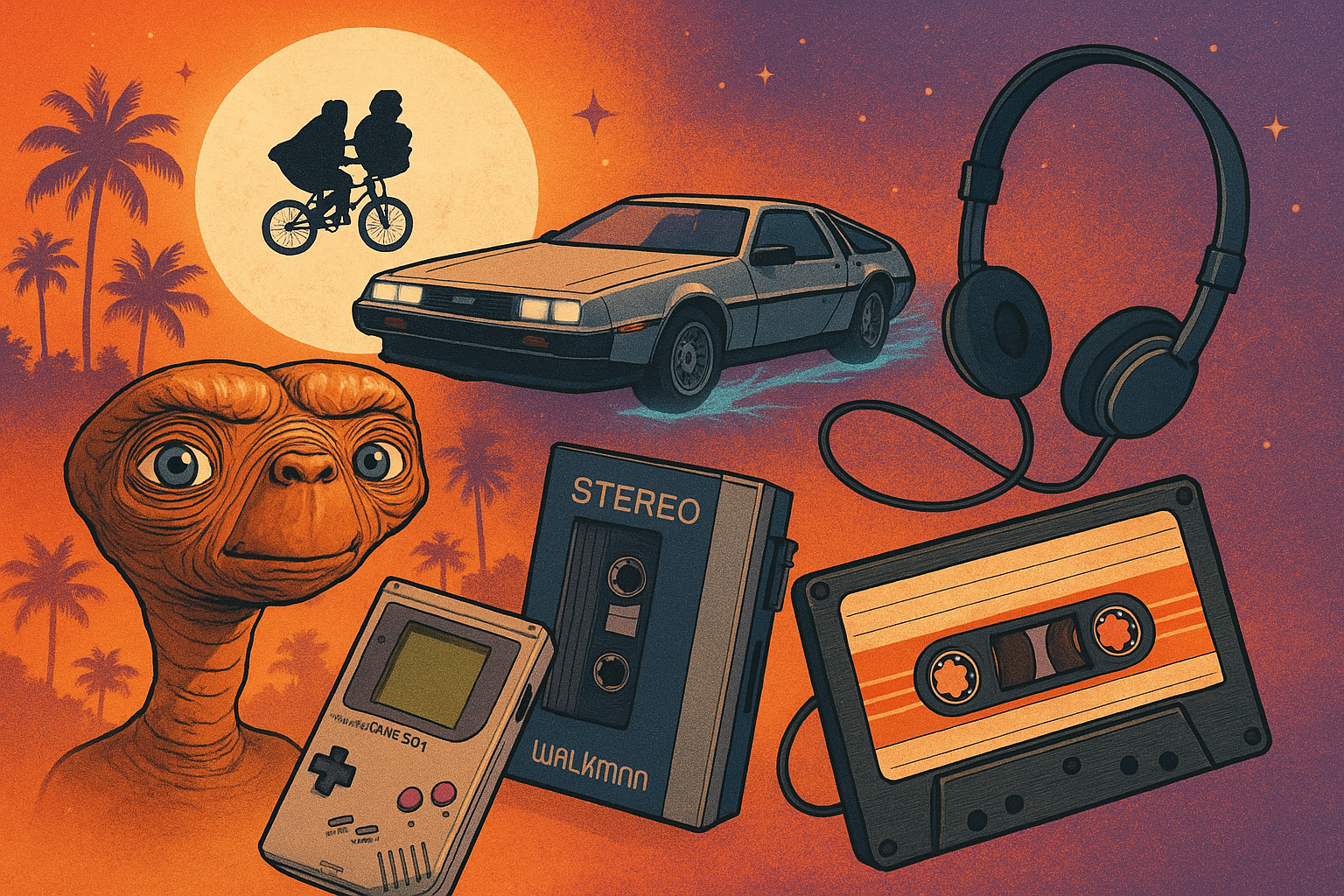Your cart is currently empty!
There’s a strange psychology that is hanging over anyone born between the late 1960’s, early 1970’s, and the early 1990’s. The bar for music, movies, and cultural touchstones has been set so absurdly high that attempting to match or even replicate it today feels almost impossible.
Even if some of these were released before we were born, their shadows still loom over us today. The Beatles, Led Zeppelin, Queen. Films like The Godfather, Star Wars, Full Metal Jacket. The MTV Generation didn’t just consume culture. We curated a canon. And that canon became a benchmark.
Generations of Expectation
Gen X grew up in the heyday of both counterculture and commercialism colliding. It was the Wild West of expression. Rules were broken, boundaries redrawn, and every new sound or film felt like uncharted territory. MTV didn’t just play music videos. It detonated fashion, slang, and identity. Movies weren’t just for entertaining. They were generational lines in the sand. For Gen X, the frontier was wide open, and the map was being drawn in real time.
For Xennials (that odd “OregonTraildiedofdystentery” micro-generation), those cultural moments weren’t just memories, they were inherited standards. This was the “Saga” generation, raised on sprawling stories that stretched across sequels, trilogies, and entire franchises. They didn’t just watch movies, they followed them religiously. Star Wars, Lord of the Rings, Harry Potter, The Matrix. These weren’t one-off entertainment tropes but ongoing mythologies that unfolded over years, teaching the Xennials to expect arcs, world-building, and cultural continuity as the norm.
Millennials took it further. They grew up in the long shadow of their big brother and sister cultural giants, constantly reminded that “nothing today ever measures up”. They were ushered in with mixtapes and Saturday morning cartoons, then traded them in for Pokémon cards, iPods, and then eventually streaming queues. They straddled the last bits of analog childhood and they embraced the first of digital adulthood. They’re just old enough to remember patience, but young enough to pioneer instant gratification.
Psychologically, a trap has been set. When our formative diets have been made up of works stamped as “the best ever”, our brains lock them in as the baseline. The dopamine hit of hearing Eddie Van Halen rip through his Eruption guitar solo or watching Darth Maul ignite his double-bladed lightsaber (I’m hearing John Williams’ Duel of the Fates in my head now as I’m writing this) doesn’t just fade away. It becomes the gold standard for everything else. New songs, new movies, new shows don’t stand on their own. They’re weighed against legends. And that kind of scale is almost impossible to balance.
The Last Shared Stage
There’s another piece to this: fragmentation. A Gen Xer can assume nearly everyone has seen E.T. or Top Gun. Xennials assume their friends know Seinfeld. Millennials could count on everyone knowing the words (or at least the chorus) to Backstreet’s Back. Today’s younger generations scroll different feeds, view different “viral” moments, and live in algorithmic silos. There is no longer one stage where everyone is watching the same band or movie at the same time. The collective experience has been fractured, and with it, the chance to build legends as we once did.
Gen Xers, Xennials, and Millennials still carry that shared cultural dictionary, though. Whole conversations can unfold in movie lingo, a shorthand only people who grew up on the same blockbusters understand. My husband and I have an entire private language built on movie quotes alone, and more than once we’ve left people staring at us in sheer confusion. For us, a muttered “It’s like a reward” from Django Unchained, or “It’s MY ISLAND!” in Braveheart is its own inside joke. That shared dictionary runs so deep that even Klingon became a language option in schools. The lines between fiction and reality blurred, and quoting movies became as much a part of communication as everyday speech.
Chasing That First High
Nostalgia isn’t just longing for the past; it’s a psychological anchor. It colors how we experience the present. When Xennials hear new music, their brains don’t judge it within a vacuum. It’s weighed and measured against the rock riffs, hip-hop beats, and the crunch of metal that defined them. That constant comparison skews perception. New music feels “less than” even if it’s technically impressive. The same goes with film. The Marvel movies had the budget and spectacle. However, they still lacked that emotional hit like that way Aragorn rallies his men at the Black Gate in The Return of the King still can. Hear me out. Part of this is that loss of surprise. That loss of anticipation. Instant streaming means the film is waiting at home. Marketing campaigns reveal half of the plot before we even sit down. Trailers stretch into mini-movies, and online chatter spoils it for the rest. By the time we press play, we’re already in cinema sensory overload. The magic of discovery, that raw shock and awe of the unexpected, is now gone.
The Impossible Benchmark
Here’s the nuance of it all: it’s not that the newer generations cannot or have not produced brilliance. However, the bar has been set at “rewrite culture”. That’s not just a difficult task, it’s nearly impossible in a fractured, streaming-dominated, short attention span culture. The pressure is to match not just talent, but a once-in-a-century alignment of industry, technology, and shared audience. Unfortunately, that’s life’s cruel repeat of history. Our legends weren’t just artists; they were our constellations. They lit the sky once, and we’re still navigating by their glow.


Leave a Reply